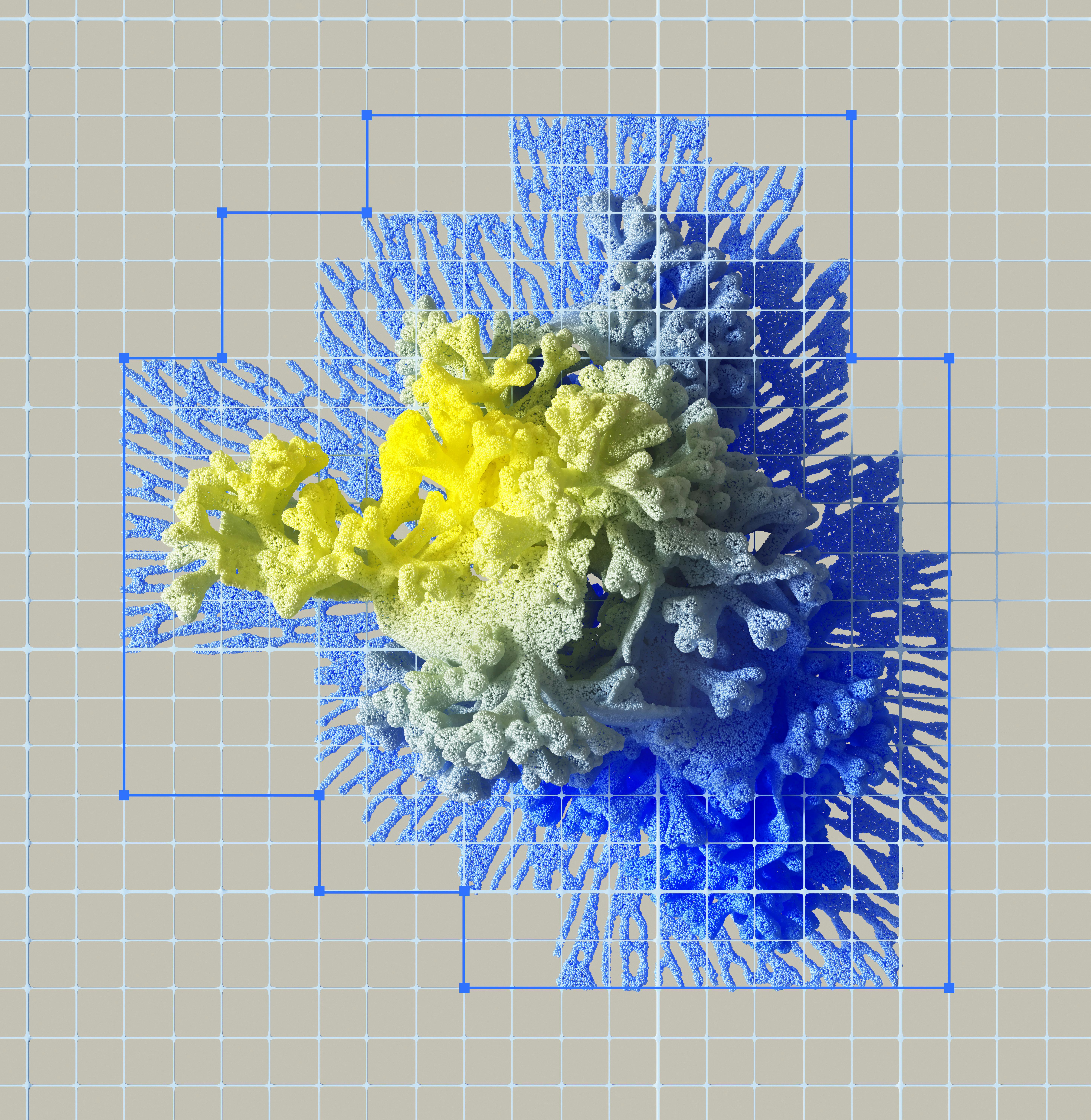Secret AI Rigging Football Bets Uncover How to Profit
Estimated Reading Time: 12 minutes
TL;DR
- A leaked report suggests AI is subtly influencing football betting markets, making traditional tips less reliable.
- Bettors can identify AI 'fingerprints' through unusual odds movements, betting volumes, and statistical anomalies.
- Adapting your strategy to focus on live betting, niche markets, and deep human analysis can help you profit.
- Trustworthy platforms and continuous learning are essential to navigate this evolving landscape.
- The future of betting demands a proactive, informed approach to stay ahead of algorithmic influences.
Key Takeaways
- AI in sports betting presents a new frontier, transforming how odds are set and how matches might be perceived.
- Your traditional handicapping methods may need significant adjustment as advanced algorithms enter the fray.
- Profiting amidst this change requires understanding AI tactics and developing countermeasures in your personal betting strategy.
- Vigilant data analysis and keen market observation are crucial tools for discerning algorithmic manipulation.
- Responsible betting on secure, regulated platforms like Place your bets on Bantubet Kenya remains your best defense.
Table of Contents
- Background & Context: The AI Revolution in Football Betting
- Key Insights & Strategies: Unmasking the AI's Influence
- Case Studies & Examples: When Algorithms Take the Lead
- Common Mistakes to Avoid in the AI Betting Era
- Expert Tips & Best Practices for Outsmarting the Bots
- Future Trends & Predictions: Betting in an AI-Dominated World
- Conclusion: Reclaiming Your Edge in the AI Era
- FAQs: Your Burning Questions About AI & Football Betting Answered
A tremor has run through the world of football betting. For years, we've honed our skills, analyzed stats, and relied on expert insights to find an edge. But now, a stark reality threatens to undermine it all. A leaked report reveals secret AI rigging football bets. Your expert tips are now worthless. This isn't a sensational headline; it's a sobering warning for every serious punter. We stand at a crossroads where the very integrity of football betting is being challenged by sophisticated artificial intelligence. Our mission today is to help you uncover AI 'fingerprints' proving the game is rigged and, crucially, to teach you how to profit from the chaos.
The era of human-centric analysis is rapidly evolving, giving way to a new paradigm where algorithms hold unprecedented sway. Understanding this shift is not just an advantage; it’s a necessity for survival in the modern betting landscape. This article will equip you with the knowledge and strategies to navigate this brave new world, turning potential threats into profitable opportunities.
Background & Context: The AI Revolution in Football Betting

The integration of Artificial Intelligence into sports, and specifically sports betting, is no longer a futuristic concept but a present reality. AI systems possess the ability to process and analyze colossal amounts of data at speeds and scales unimaginable to humans. From player performance metrics and team strategies to historical match outcomes and even weather patterns, AI can dissect every conceivable variable that might influence a game's result.
Initially, AI was heralded as a tool for enhanced predictions and more accurate odds setting, benefiting both bookmakers and bettors by creating a more efficient market. However, the sophisticated nature of these algorithms also opens a Pandora's Box of potential manipulations. The 'rigging' discussed in the leaked report isn't necessarily about bribing players or referees in the traditional sense, but rather an algorithmic exploitation of the betting market itself. This could involve identifying and capitalizing on tiny inefficiencies in odds across different bookmakers or even influencing betting volumes to shift lines in a predetermined direction, all without direct human interference in the game's actual play.
The global sports analytics market, heavily driven by AI, is projected to reach over $6 billion by 2029, demonstrating the immense investment in these technologies. Furthermore, it's estimated that a significant portion, potentially up to 40%, of high-volume sports bets are now influenced or placed by algorithmic systems rather than purely human intuition. This growing algorithmic presence fundamentally alters the dynamics of the betting world, demanding a new level of sophistication from bettors to remain competitive.
Key Insights & Strategies: Unmasking the AI's Influence
Detecting AI 'Fingerprints': The Subtle Signs of Manipulation

Identifying when AI might be influencing a match requires a sharp eye and a commitment to meticulous data observation. These algorithms leave subtle 'fingerprints' in the market, often imperceptible to the casual bettor. Understanding these signs is your first line of defense and offense. AI-driven manipulation often manifests as unusual betting volumes on outcomes that seem obscure, or sudden, significant odds movements that lack any apparent public information or news justification. These shifts can happen in milliseconds, making them difficult to track without the right tools and knowledge.
Furthermore, AI might exploit specific statistical patterns that appear in hindsight, such as an unusual number of corners, fouls, or even goal timings that deviate significantly from historical averages for particular teams or leagues. By recognizing these anomalies, you can begin to question the natural flow of a game and the betting markets surrounding it.
Here’s how you can start identifying these algorithmic influences:
- Monitor Pre-Match Odds for Unusual Drops/Surges: Use odds comparison sites to track movements across multiple bookmakers. Look for sudden, steep changes that don't correspond with team news, injuries, or other public information.
- Analyze Historical Data for Statistical Deviations: Dive deeper than surface-level stats. Look for long-term averages for teams regarding goals, cards, corners, and compare them to current trends. Significant, unexplained deviations could be a red flag.
- Cross-Reference Multiple Bookmakers for Discrepancies: AI might target specific bookmakers with weaker algorithms or less liquidity. Finding significant differences in odds for the same market across various platforms can indicate manipulation or arbitrage opportunities.
- Look for 'Smart Money' Activity: While hard to pinpoint, consistent large bets on specific outcomes, especially from professional syndicates, can often precede AI-driven shifts. Observe how odds react to substantial investments.
Adapting Your Betting Approach: Profiting in a Rigged Game
Your traditional strategies need an upgrade. In an AI-influenced environment, blindly following mainstream tips or relying solely on pre-match analysis can be detrimental. Instead, consider these adaptive strategies:
- Focus on Live Betting: The dynamic nature of live betting often presents opportunities that AI systems struggle to fully predict in real-time. Human observation of game flow, momentum, and unexpected events can still offer an edge.
- Explore Niche Markets: While AI dominates main markets like match winners and over/under goals, less liquid or more complex markets such as exact score, first goalscorer, number of corners, or player-specific props might have thinner data for AI to exploit, leaving room for human insight.
- Value Betting vs. Chasing Favorites: AI might inflate odds on favorites or suppress odds on underdogs to create perceived value where none exists. Focus on genuine value derived from your own deep analysis, rather than perceived value created by market movements. For reliable value, Place your bets on Bantubet Kenya, a platform committed to fair play and transparent odds.
Case Studies, Examples, or Comparisons: When Algorithms Take the Lead
While direct evidence of AI 'rigging' remains largely anecdotal or veiled in secrecy, sports integrity organizations frequently report on suspicious betting patterns that align with algorithmic influence. For instance, consider a hypothetical scenario: a mid-table league match between two seemingly evenly matched teams. Leading up to the game, the odds for a draw inexplicably shorten dramatically across several major bookmakers, despite no new team news, injuries, or external factors emerging. Traditional analysis might suggest a narrow win for either side. However, the market, seemingly guided by an unseen hand, heavily favors a stalemate. The match ends in a 0-0 draw.
This isn't necessarily proof of human match-fixing but could be an instance where an AI system identified a minute, overlooked statistical anomaly or a complex interplay of factors (e.g., historical draw rates in specific weather conditions, fatigue levels of particular players, referee tendencies) that a human analyst might miss. The AI then floods the market with bets, shifting the odds and creating an impression of certainty. Reports from bodies like Sportradar and IBAS (Independent Betting Adjudication Service) often highlight suspicious betting patterns, with some estimates suggesting up to 1-2% of matches globally showing signs of unusual activity, a figure potentially influenced by sophisticated algorithmic betting.
Another common scenario involves specific in-play markets. An AI might identify a vulnerability during a live match—for example, a sudden drop in a key player's sprint speed indicating fatigue, or a defensive weakness exposed by a particular attacking formation. The AI could then rapidly place bets on outcomes like 'next goal scorer' or 'total corners' before human bookmakers or bettors can react, capitalizing on the milliseconds of delay. This form of 'high-frequency betting' for sports markets, while not fixing the game outcome, certainly manipulates the profitability for conventional bettors. These instances underline the need for bettors to move beyond basic statistical analysis and embrace more dynamic, real-time assessment.
Common Mistakes to Avoid in the AI Betting Era
Navigating the complexities of AI-influenced football betting requires not just new strategies but also an awareness of common pitfalls that can lead to significant losses. The landscape has changed, and what worked before might now be a direct route to financial disappointment. Avoiding these mistakes is as crucial as adopting new winning tactics.
One of the most significant errors is blindly following mainstream tips and consensus predictions. If an outcome appears to be universally agreed upon and the odds reflect that, it's highly probable that AI has already factored in all publicly available information and adjusted the market accordingly. This leaves little to no value for the human bettor. Such scenarios are often traps, as the perceived 'certainty' is merely an algorithmic construction.
Another critical mistake is ignoring significant, unexplainable market shifts. When odds move dramatically without any corresponding news—no injuries, no managerial changes, no public statement—this should immediately raise a red flag. These abrupt changes are often 'AI fingerprints,' indicating that sophisticated algorithms have detected a hidden edge and are aggressively positioning themselves. Failing to heed these warnings can mean betting directly against an informed AI.
Over-reliance on basic statistics is also a common pitfall. While historical goals, wins, and losses are important, AI delves into far more nuanced metrics like expected goals (xG), pressing intensity, player heatmaps, and defensive line stability. Betting purely on superficial stats means you're operating with incomplete information compared to the AI. Lastly, chasing losses and betting without diversification become even riskier when facing AI. Emotional betting is always detrimental, but against a rational, tireless algorithm, it's a guaranteed way to deplete your bankroll quickly. Diversifying your bets across different markets and strategies helps mitigate the impact of any single AI-influenced outcome.
Expert Tips & Best Practices for Outsmarting the Bots
In the age of AI-driven betting, reclaiming your edge demands a blend of human insight, technological awareness, and disciplined execution. It's about playing a different game, one where your unique analytical abilities can still shine. To truly outsmart the bots, you need to cultivate a multi-faceted approach that considers both the visible and invisible forces at play.
Firstly, immerse yourself in the human element of football. While AI crunches numbers, it often struggles with the unpredictable nuances of human emotion, team chemistry, and individual motivation. Deep dive into team news, injury reports, and managerial philosophies. Understand player morale, the dynamics of rivalry matches, and the psychological impact of recent results. These are areas where human intuition often surpasses algorithmic cold logic. A star player returning from injury, for example, might have a greater psychological impact on a team than raw stats would suggest.
Secondly, arm yourself with advanced analytical tools. While you might not have access to the same resources as professional AI syndicates, you can leverage sophisticated public data. Utilize metrics like Expected Goals (xG), Expected Assists (xA), and other advanced statistical models. Websites like Understat or FBRef provide a wealth of detailed statistics that go beyond simple goals and assists, giving you a deeper understanding of true team performance and potential value spots.
Thirdly, diversify your betting portfolio. Don't put all your eggs in one basket, especially in markets heavily targeted by AI. Explore alternative markets like Asian handicaps, goal lines, or corners, where AI influence might be less pronounced due to lower liquidity or more complex variables. Consider spreading your risk across different leagues and even different sports. This strategy not only mitigates risk but also opens you up to more opportunities where AI might not yet have a complete stranglehold.
Finally, consider leveraging specialized tools that help identify value. While not AI themselves, platforms like OddsPortal (for odds comparison) or BetBurger (for arbitrage and value betting) can help you spot discrepancies across bookmakers, which might be a result of AI inefficiency or a genuine opportunity. Check out Betting Analytics Software on Amazon for tools that can aid in your statistical analysis. Remember, knowledge is power, and consistent learning is your best defense. For secure and diverse betting options, Place your bets on Bantubet Kenya, where you can apply these expert strategies with confidence.
Future Trends & Predictions: Betting in an AI-Dominated World
The trajectory of AI in sports betting is one of relentless advancement. We can expect to see an even greater sophistication in algorithmic predictions, potentially moving beyond pre-match analysis to real-time, micro-event betting within games. This means AI could influence outcomes not just on who wins, but on which player gets the next yellow card or whether a penalty will be awarded within the next five minutes. The 'cat-and-mouse' game between AI-powered betting syndicates and sports integrity units will intensify, leading to a constant evolution of detection methods and counter-strategies.
From a geo-specific perspective, markets in rapidly growing regions like Africa, particularly Kenya, are at an interesting juncture. Mobile betting has exploded in Kenya, making it a fertile ground for innovation and, potentially, for AI influence. The sheer volume of transactions and the widespread adoption of mobile payment systems mean that even small algorithmic manipulations can have significant cumulative effects. This presents both challenges and opportunities. On one hand, less mature markets might be more susceptible to initial AI exploitation due to less sophisticated regulatory oversight or data infrastructure. On the other hand, the agility and rapid adoption of technology in these markets could also lead to unique, localized solutions and betting strategies that are harder for global AI to generalize.
We might also see the rise of decentralized betting platforms leveraging blockchain technology. These platforms could offer increased transparency and potentially more resistant structures against centralized algorithmic manipulation, as odds are set by a collective rather than a single bookmaker. This decentralization could empower individual bettors by giving them more control and visibility into market dynamics, offering a potential counterbalance to the increasing power of AI. The future will demand constant adaptation, a focus on verifiable data, and a commitment to responsible and informed betting practices.
Conclusion: Reclaiming Your Edge in the AI Era
The revelation that a leaked report reveals secret AI rigging football bets is not a death knell for your betting aspirations; it's a clarion call to evolve. While it’s true that your expert tips are now worthless if they rely solely on outdated methods, this new challenge presents an unparalleled opportunity for those willing to adapt. By learning to uncover AI 'fingerprints' proving the game is rigged, you empower yourself to navigate this altered landscape with confidence and strategic foresight.
The future of football betting belongs to the informed, the analytical, and the adaptable. Embrace the tools and insights discussed—from meticulous market observation to deep statistical analysis and a focus on human elements that AI struggles to grasp. The game is evolving, and so must your approach. Don't be a casualty of the AI revolution; become a beneficiary. With the right strategies, you can not only survive but thrive amidst the chaos, consistently finding value where others see only uncertainty. For a trusted and secure platform to apply your newly acquired strategies, Place your bets on Bantubet Kenya. Your journey to mastering the AI betting era starts now.
FAQs: Your Burning Questions About AI & Football Betting Answered
1. How can I reliably spot AI-rigged games, and are there specific leagues or types of matches where this is more common?
Reliably spotting AI-influenced games involves vigilance. Look for abrupt, large odds movements without corresponding public news, unusual betting volumes on obscure outcomes, and statistical anomalies (e.g., disproportionate number of corners or fouls). While AI can target any league, it tends to gravitate towards high-liquidity markets and less regulated leagues where detection might be harder. Focusing on mid-tier European leagues or certain Asian markets could reveal more 'fingerprints.' For a deeper dive, check reports from FIFA's Integrity Initiatives.
2. Are my traditional betting tips completely worthless now that AI is involved?
Not entirely worthless, but their value is significantly diminished if they don't account for AI's influence. Traditional tips based on basic form, head-to-head records, and readily available stats are likely already factored into AI-driven odds. To regain value, you must augment your tips with deeper analysis, focusing on human elements, niche markets, and real-time game dynamics that AI finds harder to process instantly. Think of it as upgrading your analytical software.
3. Can betting sites and regulators effectively detect and prevent AI manipulation?
Betting sites and regulators are constantly working to detect and prevent manipulation, including that driven by AI. Many employ their own advanced algorithms and human integrity units to monitor betting patterns. Organizations like ESSA (Sports Betting Integrity) play a crucial role in sharing information on suspicious activities. However, it's an ongoing cat-and-mouse game; as detection methods improve, so does the sophistication of manipulative AI.
4. What kind of AI is typically used in sports betting, and how does it work?
Sophisticated AI models used in sports betting typically include machine learning algorithms such as neural networks, decision trees, and regression models. These AIs are fed vast datasets of historical match data, player statistics, team news, weather, and even social media sentiment. They work by identifying complex patterns and correlations that humans would miss, allowing them to predict outcomes, set odds, and even execute bets with high precision. Learn more about AI in sports from sources like DeepMind's sports analytics research.
5. Is it legal for AI to influence betting markets, or is it considered a form of cheating?
The legality is a grey area and depends on jurisdiction and specific actions. If AI is merely used for advanced statistical analysis and informed betting, it's generally considered fair play, akin to a human using sophisticated models. However, if AI is used to collude, manipulate odds across platforms, or exploit system vulnerabilities in a way that constitutes market rigging or unfair advantage, it can cross into illegal or unethical territory. Regulations are still catching up with the rapid pace of AI development. For legal perspectives, refer to gaming commissions like the UK Gambling Commission.
6. How can I improve my football betting strategy to compete effectively against AI algorithms?
Improving your strategy against AI requires a multi-pronged approach. Focus on human intelligence (team morale, tactical changes, individual player psychology), utilize advanced statistics (xG, xA), specialize in niche markets where AI data might be thinner, and embrace live betting for real-time reactions. Diversify your bets, always seek genuine value, and continuously educate yourself on AI trends. For reliable and diverse betting options where you can test these strategies, Place your bets on Bantubet Kenya.
Internal Link Suggestions:














Post a Comment
0 Comments